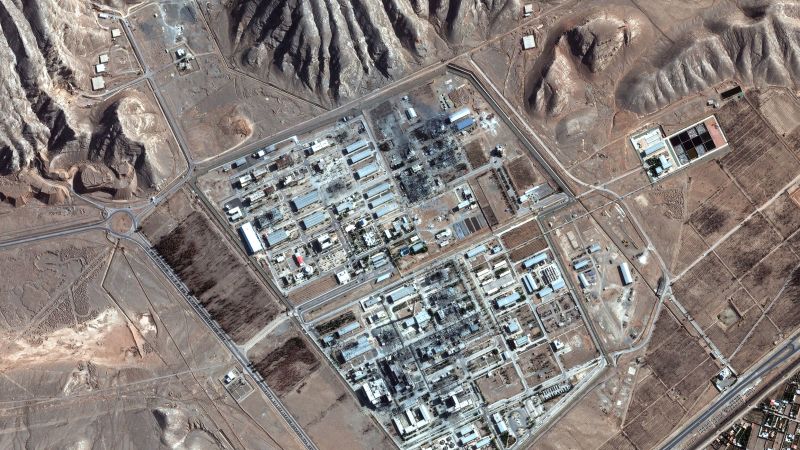In a significant geopolitical shift, Iranian President Masoud Pezeshkian has approved a law halting cooperation with the International Atomic Energy Agency (IAEA). This decision, announced on Wednesday, is poised to complicate any efforts by Tehran to revive its nuclear program, which has been under international scrutiny. The move follows a recent parliamentary vote endorsing the suspension of collaboration with the UN nuclear watchdog.
The Iranian government accuses the IAEA of colluding with Israel, allegedly facilitating attacks on its nuclear facilities, a claim the agency firmly denies. President Pezeshkian has directed Iran’s Atomic Energy Organization, along with the Supreme National Security Council and the Ministry of Foreign Affairs, to initiate the implementation of this new law, as reported by the state-run news agency IRNA. The specifics of the law’s implementation remain unclear, but the decision could allow Iran to advance its nuclear ambitions without international oversight.
Background and Implications
Iran’s decision to suspend cooperation with the IAEA comes against a backdrop of escalating tensions in the region. Iran is a signatory to the Non-Proliferation Treaty (NPT), which mandates member countries to permit monitoring and inspections to ensure nuclear programs remain peaceful. The recent legislative action in Iran raises questions about its commitment to these international obligations.
An IAEA spokesperson, speaking to CNN, acknowledged the reports but stated that the agency is awaiting official communication from Iran. This development follows a series of military confrontations, including an unprecedented attack by Israel on Iranian military and nuclear sites last month, which was followed by U.S. strikes on facilities in Natanz, Isfahan, and Fordow.
International Reactions and Concerns
The international community has expressed concern over Iran’s nuclear activities, especially after the IAEA reported that Iran was enriching uranium to near weapons-grade levels. This report led to a resolution censuring Iran, which has been met with indignation by the Iranian government. Iran’s Supreme Leader Ayatollah Khamenei has consistently denied any intentions of developing nuclear weapons, citing religious prohibitions against weapons of mass destruction.
“We are aware of these reports. The IAEA is awaiting further official information from Iran,” an IAEA spokesperson told CNN.
Historical Context and Future Prospects
The current situation echoes past tensions, notably after the U.S. withdrawal from the Joint Comprehensive Plan of Action (JCPOA) in 2018 under President Donald Trump. The agreement, originally brokered by the Obama administration, sought to limit Iran’s nuclear capabilities in exchange for the lifting of economic sanctions. Since the U.S. exit, Iran has gradually reduced its compliance with the deal, escalating uranium enrichment activities.
On the ground, the recent 12-day conflict between Israel and Iran ended with a ceasefire, but the damage to Iran’s nuclear infrastructure was significant. Despite this, Iran has vowed to continue its nuclear program, claiming its intentions are peaceful.
On Sunday, the IAEA said US strikes on Iran fell short of causing total damage to the program and that Tehran could restart enriching uranium “in a matter of months.”
Expert Opinions and Analysis
Experts are divided on the implications of Iran’s latest move. Some analysts warn that the suspension of cooperation with the IAEA could lead to further isolation of Iran on the international stage and potentially provoke a military response. Others argue that Iran’s actions are a strategic maneuver to gain leverage in any future negotiations with global powers.
Dr. Ali Reza, a Middle East policy expert, suggests that Iran’s decision reflects a broader strategy to assert its sovereignty and resist external pressures. “Iran is sending a clear message that it will not bow to international dictates, especially when it perceives them as unjust or biased,” he noted.
Looking Ahead
The path forward remains uncertain. The international community, particularly the United States and European nations, will likely seek diplomatic avenues to address the growing nuclear concerns. However, with Iran’s current stance, achieving a peaceful resolution may prove challenging.
As the situation develops, close monitoring of Iran’s nuclear activities and diplomatic engagements will be crucial. The global community awaits Iran’s next moves and the potential for renewed dialogue or further escalation.
